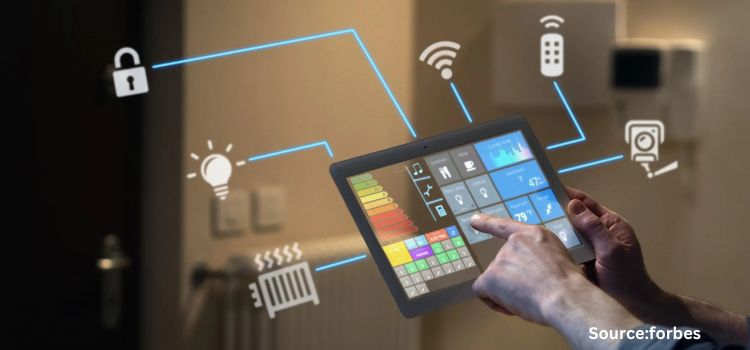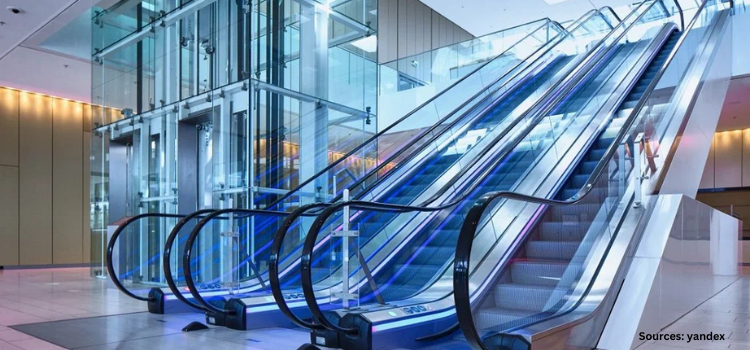Beyond Brick and Mortar: Future Trends in Real Estate
17-Feb-2025

Introduction:
In today's changing world, real estate is undergoing significant transformations. With a growing global population, increased urbanization, and advancements in technology, the real estate landscape is evolving. This article takes a closer look at the current state of real estate, examining the trends and opportunities that define the sector.
From sustainable development to the use of cutting-edge technologies, we will explore how real estate is adapting to meet the changing needs and preferences of people around the world. Join us as we navigate through the world of property markets, where traditional practices meet modern visions, and where the foundations of the past pave the way for the sustainable and digital homes of the future.
Sustainable Building Practices
The real estate market is undergoing significant transformation, with sustainability emerging as a core consideration. As environmental concerns and climate change take the center stage globally, there is a growing emphasis on sustainable building practices, encompassing energy-efficient designs, eco-friendly construction methods, and green materials.
Real estate developers and property managers increasingly invest in smart building technologies, allowing real-time energy monitoring and management. These energy-efficient buildings reduce operational costs, appeal to environmentally-conscious tenants, and often benefit from government incentives.
Therefore, the future of real estate depends on taking a comprehensive approach to sustainability. This involves not only considering the construction process but also addressing the long-term environmental impact and enhancing the quality of life for residents and tenants. This approach is not only a response to environmental challenges but also a reflection of changing consumer preferences and the increasing recognition of the long-term economic benefits of sustainability in the real estate market.
Smart Cities and Homes
The rise of smart technology is greatly reshaping both homes and urban landscapes. Smart homes, equipped with automation, advanced security features, and energy-efficient systems, are rapidly becoming the prevailing standard for modern living. These homes integrate cutting-edge technology to enhance convenience, safety, and sustainability, offering residents greater control over their living spaces and resource consumption.
At the same time, the concept of smart cities is gaining momentum, with urban areas increasingly leveraging technology to optimize infrastructure, services, and governance. Both smart homes and cities aim to improve living standards by developing transportation infrastructure, improving public services, and environmental sustainability.
In smart cities, data-driven solutions are applied to enhance efficiency, reduce congestion, and promote sustainability, ultimately creating more livable and interconnected urban environments than before. The rise of smart technology is not just a trend but a transformative force driving the evolution of how people live and thrive in both homes and cities.
Several countries across the globe are investing in the development of smart city infrastructure, such as the U.S. government. It announced a major investment of USD 220 billion in smart city infrastructure nationwide. This comprehensive initiative encompasses many developments, including enhancements to transportation networks, upgrades to utility systems, and various community development initiatives.
This significant investment in smart city infrastructure is poised to impact the real estate landscape in the region profoundly. As the infrastructure projects unfold, they are expected to catalyze increased demand for real estate properties. This is due to the attractive prospects associated with improved connectivity, amenities, and the overall quality of life in these smart cities.
Rise of Proptech
The integration of advanced technologies such as property management software that streamlines operations and enhances user experience to use blockchain for secure and transparent transactions has brought a transformation in the real estate industry. Property management software, for instance, streamlines and automates tasks related to leasing, maintenance, and tenant interactions.
This, in turn, enhanced efficiency and user experience for both property owners and tenants. Blockchain technology, on the other hand, is introducing unprecedented levels of transparency and security to real estate transactions by creating immutable digital records of property ownership and transaction history.
The implications of Proptech are extensive. It simplifies and accelerates processes within the real estate market and provides valuable insights through data analytics, making it easier for real estate professionals to make informed decisions. As Proptech continues to evolve, it holds the potential to reduce costs, minimize risks, and ultimately make real estate more accessible and efficient for a broader spectrum of participants than before.
Virtual/Augmented Reality and 3D modeling
Virtual reality, augmented reality, and 3D modeling technologies are revolutionizing how real estate is presented and experienced for buyers and renters. These technologies offer a range of immersive solutions, transforming the property search & design process and making it more efficient, informative, and engaging than before.
Augmented reality interior design apps, on the other hand, allow users to visualize and personalize living spaces with virtual furniture and decor. This can be helpful for buyers and renters, as it will enable them to see how their belongings would look in the space and make informed decisions about how to decorate.
In addition to these immersive solutions, 3D technology is employed to generate virtual tours of properties for individual clients or develop interactive 3D models of new developments that have not yet been built. Virtual tours also provide a more detailed and immersive experience than traditional photos and videos, giving buyers and renters a better sense of the property's layout, size, and atmosphere.
As these technologies continue to progress and become more widely available, they are poised to play an even greater role in the real estate industry. By enhancing how properties are showcased and helping clients make informed and satisfying choices, virtual and augmented reality technologies are revolutionizing the real estate experience for everyone involved.
Matterport, a leading provider of immersive 3D and spatial data technology, introduced "Digital Pro." It is an all-in-one platform that enables real estate professionals to create immersive 3D tours, high-quality photos, and schematic floor plans, all within a single platform.
The company aims to provide a more streamlined and efficient process for showcasing properties, ultimately improving the real estate marketing experience for both sellers and buyers. Matterport's Digital Pro represents a significant advancement in the real estate industry's adoption of prop-tech, promising to reshape how properties are marketed and experienced in the digital age.
Health and Well-being Integration
The real estate industry is transforming significantly, driven by a growing emphasis on health and well-being. Homebuyers and renters increasingly seek living spaces that can enhance their physical and mental well-being. Real estate developers are incorporating various health-focused features into their projects in response to this evolving demand. Green space is one of the most common health-focused features in new real estate developments.
Parks, gardens, and other natural areas offer a variety of benefits for residents, including improved air quality, reduced stress levels, and increased opportunities for physical activity. Green spaces are also vital in promoting social cohesion and community building. Proximity to healthcare facilities is another key consideration for many homebuyers and renters. Living close to a hospital, clinic, or other healthcare facility can provide residents with peace of mind, knowing they have quick and easy access to medical care if needed.
Conclusion
The real estate industry is undergoing a dynamic transformation, driven by technology and changing consumer expectations. Sustainability is becoming a core focus, with energy-efficient designs, eco-friendly construction methods, and green materials now central considerations.
Smart technology is also reshaping both homes and urban landscapes. Smart homes and cities offer enhanced convenience, safety, and sustainability. The investments in smart city infrastructure projects, such as improved transportation networks, upgraded utility systems, and various community development initiatives, are poised to transform the real estate market by improving connectivity and amenities.
This, in turn, drives the demand for properties in these forward-thinking communities. In addition to these trends, Proptech innovations are streamlining operations, making real estate more accessible and efficient than before. Virtual and augmented reality technologies are revolutionizing property presentations, providing buyers and renters with immersive experiences that allow them to explore properties remotely and visualize their future homes.
These multifaceted trends underscore the evolving nature of the real estate sector, which is adapting to adapt to the evolving needs and expectations of consumers. By embracing technology and sustainability, the real estate industry is positioning itself for continued growth and innovation in the years to come.
About the Author
 Arjun Chetry is an accomplished researcher and writer with a history of more than three years of conducting thorough research. With a professional background as a market researcher, he has a keen eye for analyzing industry trends and understanding consumer behavior. He remains committed to staying up-to-date with the latest market trends and recognizing their impact on both business and society. His well-rounded interests and experiences contribute to his ability to offer insights and perspectives on a wide range of topics. The author can be reached at info@nextmsc.com
Arjun Chetry is an accomplished researcher and writer with a history of more than three years of conducting thorough research. With a professional background as a market researcher, he has a keen eye for analyzing industry trends and understanding consumer behavior. He remains committed to staying up-to-date with the latest market trends and recognizing their impact on both business and society. His well-rounded interests and experiences contribute to his ability to offer insights and perspectives on a wide range of topics. The author can be reached at info@nextmsc.com
Add Comment
Related Blogs
Top 10 Companies Operating in the Global Smart Home Industry
Next Move Strategy Consulting Forecasts strong growth in the global Smart Home M...
Role of Leading Companies in Shaping the Latest Trends in Elevator Market
Introduction In the ever-evolving landscapes of modern ci...
How Emerging Technologies are Reshaping the Construction Market
Introduction The construction industry stands on the brink of a technological...











